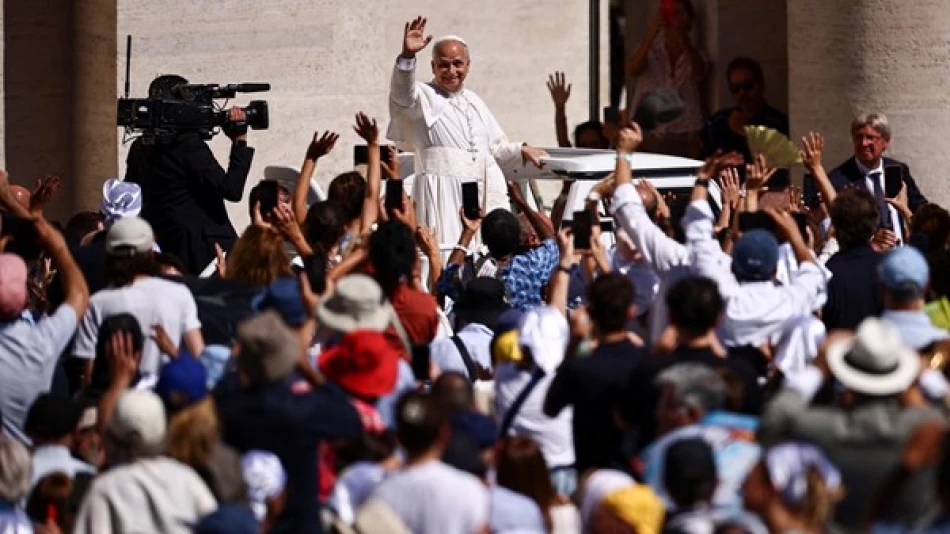
Pope Expresses Solidarity with Gaza Amid Ongoing Conflict
Pope Francis Condemns Violence as Israel Expands Ground Operations in Gaza City
Pope Francis delivered a pointed message against violence and forced displacement on Sunday, expressing Catholic Church solidarity with Palestinians in Gaza as Israel escalated its ground offensive into the territory's largest city. Speaking to Catholic solidarity groups gathered in St. Peter's Square, the pontiff declared that "no future is built on violence, on forced displacement, on revenge."
Vatican Takes Clear Stance Amid Escalating Conflict
The Pope's remarks came as Israel expanded its ground operations into Gaza City this week, triggering massive displacement from the densely populated urban center. Francis addressed representatives of Catholic organizations active in Gaza solidarity efforts, praising the "many initiatives that express throughout the entire Church closeness to the brothers and sisters who suffer in that suffering land."
His comments drew applause from the gathered crowd as he emphasized that "peoples need peace," echoing statements from Church leaders in the Holy Land.
Timing Reflects Growing International Pressure
The Vatican's public stance comes at a critical moment as Israel's military operations intensify in Gaza's most populated areas. Gaza City, home to hundreds of thousands of Palestinians, has become the focal point of Israel's expanded ground campaign, creating what humanitarian organizations describe as a displacement crisis.
Historical Context of Vatican Diplomacy
The Pope's statement follows the Vatican's long-standing position on the Israeli-Palestinian conflict, consistently calling for a two-state solution and protection of civilians. Francis has previously criticized both Hamas attacks and Israeli military responses, but his explicit mention of "forced displacement" directly addresses current military operations.
This approach aligns with the Vatican's broader Middle East policy, which has historically emphasized protection of Christian minorities while advocating for Palestinian rights. The Church maintains significant interests in the region through its network of schools, hospitals, and religious sites.
Broader Implications for International Opinion
The Pope's intervention adds religious authority to growing international calls for restraint. Unlike political leaders who must balance strategic relationships, the Vatican can speak more directly about humanitarian concerns without immediate diplomatic consequences.
Catholic solidarity movements across Europe and Latin America have been organizing support for Gaza civilians, and Francis's endorsement legitimizes these efforts within Church hierarchy. This matters particularly in countries with large Catholic populations where public opinion can influence government positions.
What This Means for Regional Dynamics
The statement reinforces the Vatican's role as a moral voice in international conflicts, but it also highlights the limits of religious diplomacy. While the Pope's words carry significant symbolic weight, they don't change military calculations or strategic objectives on either side.
However, sustained Vatican criticism could complicate Israel's relationships with Catholic-majority countries and potentially influence European Union positions, where several member states maintain strong Catholic traditions and often look to Vatican guidance on moral issues in foreign policy.
Most Viewed News

 Layla Al Mansoori
Layla Al Mansoori






